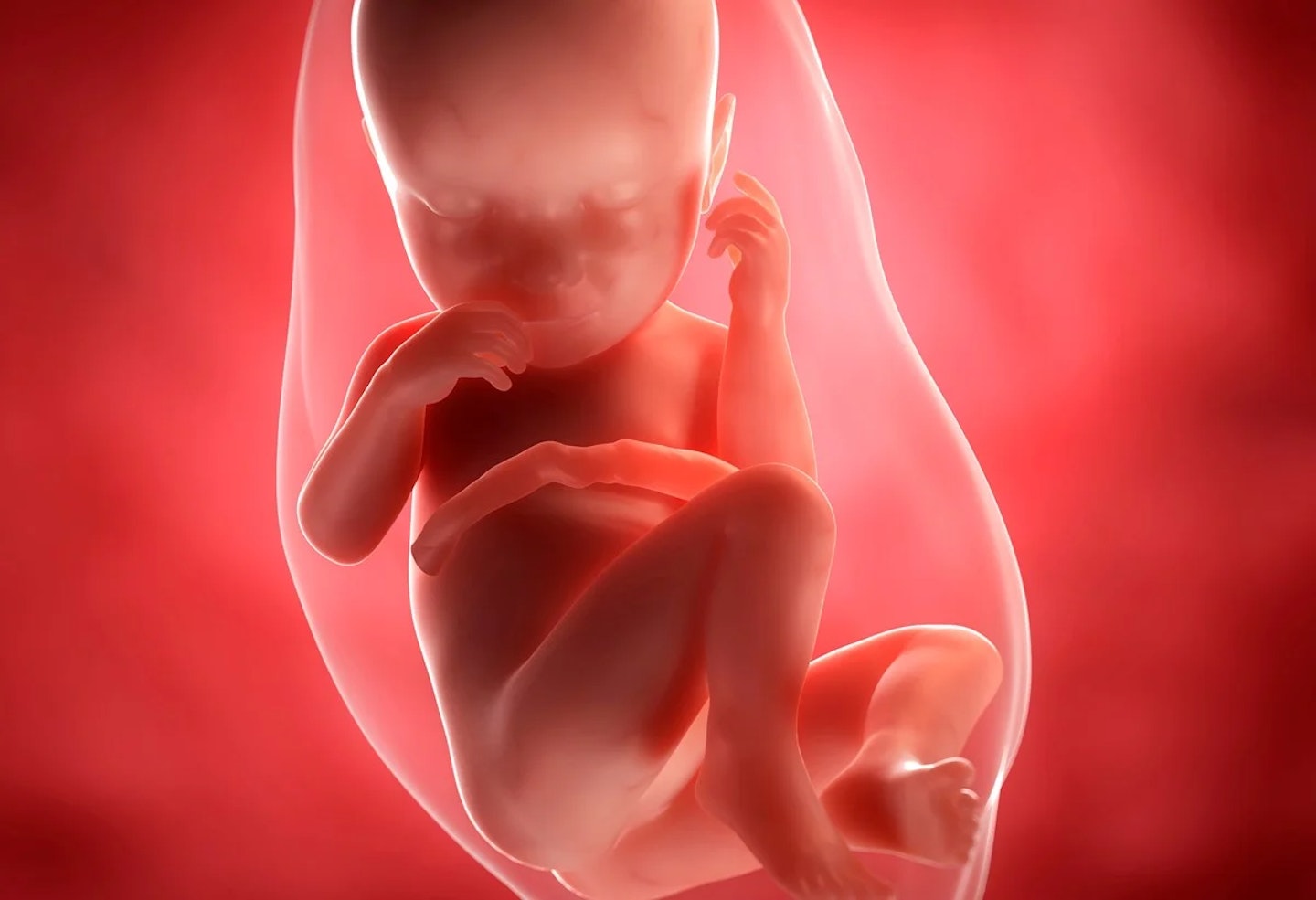It's month eighth of your pregnancy and you're so close you can practically smell that new-baby scent. You’re an old hand at this pregnancy thing now.
In fact, you feel like you’ve been pregnant forever and though it’s not quite that long, you are absolutely forgiven if you feel a little bit fed up. But your due date is in sight! We take a look at some of the common symptoms in the eighth month of pregnancy plus what your baby's getting up to.
Symptoms at 8 months pregnant
Emotions
How are you feeling deep down? A bit emotional? Yeah, that's normal for around now. You may be feeling a bit overwhelmed as the weeks are passing by, you're getting advice on just about everything, and it's a bit much.
There’s every chance you don’t really know how to feel at the moment. One minute you’re suffering from pregnancy tiredness, the next you’re determined to build all that flat pack stuff in the nursery, but then the next minute you’re on the floor having a good old sob.
This is going to be an emotional time, but don't forget everyone goes through this.
Clumsiness
You're bound to feel a bit clumsy around now if you haven't already, but don't worry! Pregnant women feel more clumsy as you're carrying a lot more weight, and your centre of gravity has changed.
It's a lot easier to lose your balance due to this, and as your joints are loosening and your coordination reduces you might find yourself stumbling over your own feet a bit more, so it's important to remember to take it steady!
Dizziness
Dizziness is also common to happen around now too. You could be feeling dizzy and light-headed from severe morning sickness, or it could be because of all the changes in your hormones. Try not to stand up so quickly, keep your blood sugar levels high and take your time when walking and standing up.
Breasts leaks
Now is a good time to invest in some breast pads - your body is getting ready to feed your baby, whether you're planning to breastfeed or not! It's important to remember that not everyone will experience this, and that's completely normal.
Varicose veins
Ah yes, the appearance of varicose veins! You may get these around now. They are blue or red swollen veins that most often appear in your legs.
Haemorrhoids
The evil twin of varicose veins - haemorrhoids are swollen veins in the lowest part of your rectum. They can be itchy, painful and could lead to bleeding.
Braxton Hicks contractions
Your body might give you some practice runs for the day you actually start with contractions! These Braxton Hicks contractions are tightening's of the uterus that last up to about 30 seconds and can scare the living you-know-what out of you when you first feel one.
Don’t worry, they’re just your body’s way of letting you know what’s to come. How thoughtful.
Baby's development at 8 months pregnant
Movements
Your baby's movements are changing constantly now. If you've noticed some more kicking than normal and small 'wriggle' movements, this could be because they are having hiccups. Their kicks will also be more visible as you might be able to see foot or hand imprints from the outside.
Positioning
As we said in month 7 of pregnancy, your baby may have been getting ready for birth by changing position by pointing their head down. By this month, your baby should have done this. You also may not feel as many movements as normal but don't worry, they are still growing.
Their body
By the end of their eighth month, their skin will no longer be wrinkled, and their kidneys will now be matured.
How big is my baby at 8 months pregnant?
You're now in the middle of your third trimester and your baby is now roughly the size of a pineapple. Your baby should weigh around 2.1kg.
What does my baby look like at eight months pregnant?
Here's an illustrative look at what your baby will look like in the womb when you're eight months pregnant.

8 months pregnant checklist
• Pack your hospital bag
If you haven't already, you might want to start putting together your hospital bag with all those essentials for you and baby. If you're not sure where to start, don't worry, our hospital bag checklist will help you out.
• Check over your birth plan
It's worth having a read over your birth plan (or birth preferences) before you reach month nine of your pregnancy to check you're happy with everything.
• Have a practice run
By now you will know where you would like to give birth and you’re wondering a lot about whether it will happen the way you’ve planned.
Consider learning the quickest route to the hospital or birthing centre where you plan to give birth, taking into account alternative routes in case there is traffic.
If you’re staying at home you might have had a birth pool practice run, and if not it might be a good time to get it up ready for when you go into labour.
• Clue up
When you are 37 weeks pregnant, you are officially considered 'full-term.' This means your baby will not be considered premature when they are born after this point. Either way, it’s a good idea to familiarise yourself with the signs of labour.
This article has been compiled using information, advice and guidance provided by the NHS.
Maria Martin is Digital Group Editor for Yours.co.uk and Motherandbaby.com. She is a mum-of-two with a passion for helping women from all walks of life – from supporting breastfeeding mothers with expert advice to encouraging conversations about mental health. In her professional role, she has over 10 years' experience in the digital world, including editing articles, focussing on SEO, social media engagement, picture researching and video editing.
